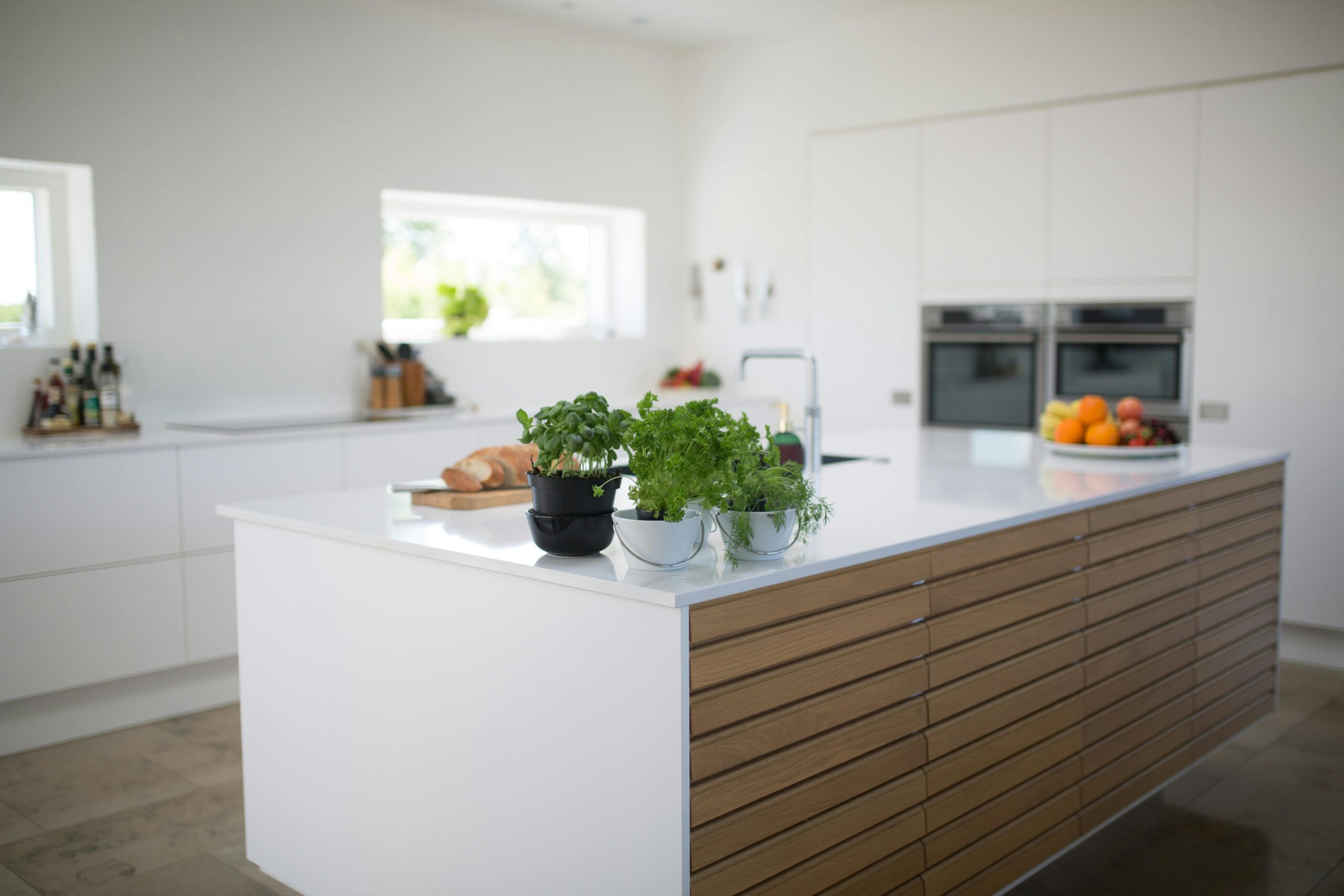Kitchen renovation is one of the most popular home improvement projects, significantly enhancing both the functionality and aesthetic appeal of your home. However, the costs can vary greatly depending on factors like the size of the kitchen, the scope of the renovation, and the quality of materials used. So, how much does it cost to renovate a kitchen, and what are the key factors that influence these costs?
Breakdown of Average Kitchen Renovation Costs
The cost of a kitchen renovation can range from a modest update to a complete overhaul. Here’s a breakdown of the average costs involved in a kitchen renovation, based on different levels of project scope:
- Basic Renovation: $5,000 to $15,000
- Focus: Cosmetic updates such as painting, replacing cabinet doors, and updating fixtures.
- Examples: Replacing outdated lighting with energy-efficient LED fixtures, painting cabinets for a fresh look, and upgrading countertops with affordable materials like laminate.
- Mid-Range Renovation: $15,000 to $35,000
- Focus: Partial remodel including new appliances, semi-custom cabinetry, and upgraded countertops.
- Examples: Installing new stainless steel appliances, replacing old cabinets with semi-custom options, and upgrading to quartz or granite countertops for enhanced durability and aesthetic appeal.
- High-End Renovation: $35,000 to $75,000+
- Focus: Complete remodel with high-end materials, custom cabinetry, and advanced appliances.
- Examples: Custom-built cabinets, high-end appliances like professional-grade ovens and refrigerators, and premium materials such as marble or exotic wood countertops.
Factors Influencing Kitchen Renovation Costs
Several factors can significantly impact the total cost of your kitchen renovation:
- Kitchen Size: Larger kitchens require more materials and labor, increasing the overall cost. A small kitchen might only need $5,000 for a basic upgrade, while a large kitchen could exceed $75,000 for a high-end renovation.
- Material Quality: The choice of materials can greatly influence costs. For instance, solid wood cabinets are more expensive than laminate, and granite or marble countertops cost more than quartz or laminate options.
- Scope of Work: The extent of the renovation, whether it involves a simple update or a complete overhaul with structural changes, affects the cost. Adding new plumbing or electrical systems will also increase expenses.
- Labor Costs: Labor costs vary by location and the complexity of the work. Hiring a professional contractor can ensure quality work but comes at a higher price compared to DIY projects.
- Location: Renovation costs can differ significantly based on geographic location. Urban areas with higher living costs generally have higher renovation expenses compared to rural areas.
Real-Life Examples and Anecdotes
Consider Lisa, a homeowner in a suburban neighborhood, who embarked on a mid-range kitchen renovation. She spent around $25,000 to replace outdated appliances, install new quartz countertops, and add a stylish backsplash. By carefully selecting mid-range materials and opting for semi-custom cabinets, she transformed her kitchen into a modern, functional space without exceeding her budget.
In contrast, John, living in a high-cost city, decided on a high-end kitchen renovation for his penthouse apartment. He invested over $70,000 in custom cabinetry, professional-grade appliances, and luxurious marble countertops. This significant investment not only enhanced his kitchen’s functionality and style but also increased the overall value of his property.
Cost-Saving Tips for Kitchen Renovation
If you’re looking to renovate your kitchen on a budget, consider these cost-saving strategies:
- Repurpose Existing Elements: Instead of completely replacing cabinets, consider refinishing or repainting them. This can provide a fresh look at a fraction of the cost.
- Shop Sales and Discounts: Look for sales on appliances and materials. Many stores offer discounts on last year’s models or bulk purchases.
- DIY Where Possible: While some tasks require professional expertise, simple tasks like painting or installing new fixtures can be done yourself to save on labor costs.
- Prioritize Upgrades: Focus on the most impactful changes, such as new countertops or modern appliances, and save other upgrades for later.
Conclusion
In conclusion, the cost to renovate a kitchen can vary widely based on several factors, including the size of the kitchen, the quality of materials, and the scope of the project. Whether you’re planning a minor update or a complete remodel, understanding the costs involved can help you budget effectively and make informed decisions to achieve your dream kitchen.
Sources for Further Reading:
- HomeAdvisor: Kitchen Renovation Costs
- HGTV: How Much Does a Kitchen Remodel Cost?
- Forbes: Average Cost of Kitchen Remodel
By planning your kitchen renovation carefully and considering all the influencing factors, you can create a beautiful and functional kitchen space that fits your budget and meets your needs.

